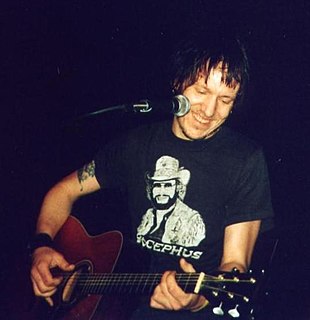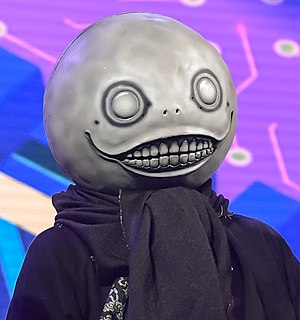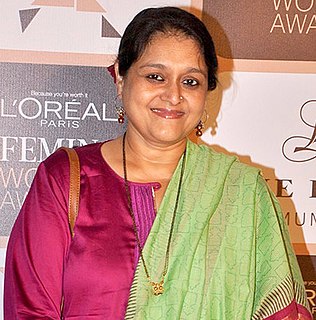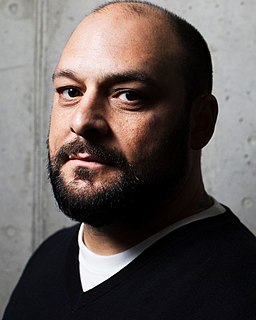A Quote by Dan Harmon
There are no normal people, there are just different kinds of weird.
Quote Topics
Related Quotes
There are no normal people, there are just different kinds of weird, all of it is human and all humanity is better than everything inhuman. So I urge you to keep expressing yourself as honestly as you can, and know that the backpedals and second-guesses really aren't necessary - they don't hurt but they're wasting your time - because when you are truly human, as we all are, and when that is your honest message to anyone, you are beyond reproach, there is no way to screw it up.
I got tired of doing battle with people thinking I was a little weird because I wasn't in a band making happy, stilted music. The only people who really seem weird to me are people who think they're normal. People who think it's possible to be normal just by doing the same things that most people do. Is there a most people? I don't know. Television makes it seem like there is, but I think that might just be television.
Who's to say what's better or worse anyway? Who's to even say what's normal or average? We're all different people and we're allowed to be different from on another. If someone ever says you're weird, say thank you. And then curtsy. No, don't curtsy. That might be too weird. Bow. And tip your imaginary hate. That'll show them.
That's just like America. It's made up of lots of different people. We're all different colors, different ages, we do different jobs -- but it takes all of us black people, white people, brown people, men and women, young and old, working in the factories, working in the fields, working in offices, working in stores -- it takes a lot of different kinds of people to get the job done for America.
We need to make sure that our children know different kinds of people, eat different kinds of food, and learn our true history. The way most schools teach history is wrong. If they talk about slavery it's typically just for a couple of days and the lessons almost never address the systems that have hindered people of color for more than 250 years. This has to change.




































